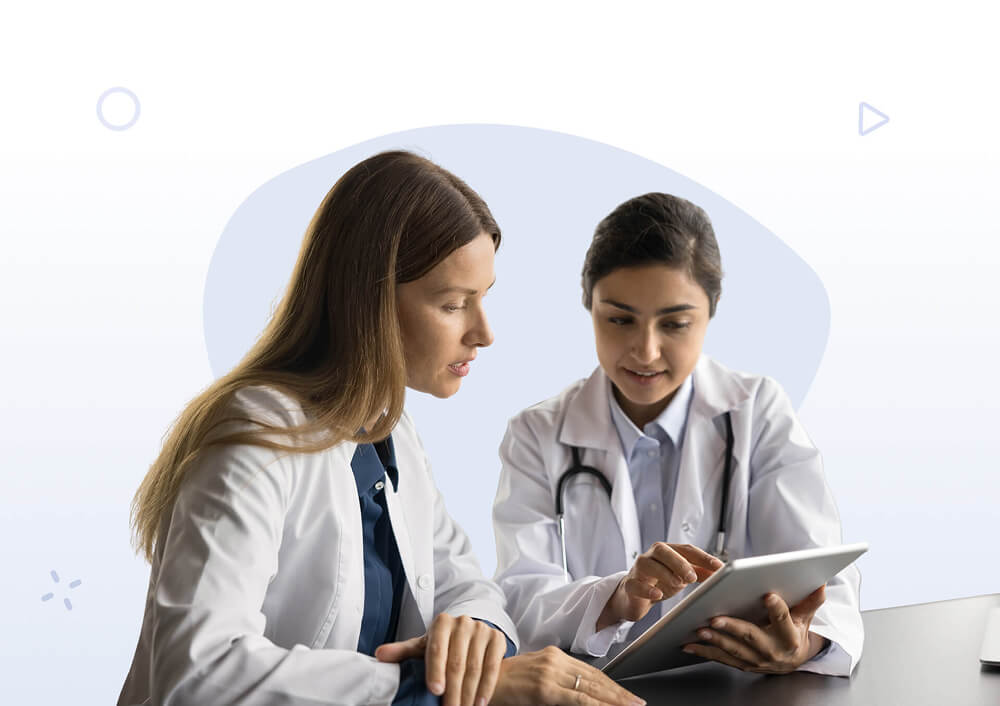In this interview, Doug Christine, a senior Software Engineer at ClinIntell, shares his journey into the software development field. From his early fascination with coding to his current role and daily responsibilities, Doug provides valuable insights and tips for both aspiring developers and experienced professionals.
Can you tell us a little bit about your background?
I have over 10 years of experience in software development, covering a wide range of areas including front-end, back-end, and database management. Most of my career, however, has been focused on front-end and mobile app development. I've always enjoyed creating interactive and user-friendly interfaces, which is why I've gravitated toward this aspect of software engineering.
What inspired you to pursue a career in software engineering?
My journey into software engineering began when my dad gave me a programming book in middle school. It was a game development book, and I was instantly hooked. Initially, I went to college for a business accounting degree, but with about a year left, I switched to a degree related to software engineering field because of the challenging job market during the 2008 recession. The bad economy pushed me into taking my interest in programming more seriously.
What does a typical day look like for you as a software engineer?
Working in software engineering means juggling many tasks at once, especially on a project like the one we're focusing on now. In the pre-development phase, I'll be helping to gather requirements and other essential details to lay the groundwork. Once I'm actively on a project, I'll spend about 70% of my day coding.
Additionally, my team and I are constantly discussing how to optimize our processes. There's always a lot going on, and while the nature of the tasks stays consistent, the specifics of what we're working on can change daily.
Can you describe a recent project you've worked on and your role in it?
Since early 2024, condition analysis has been a significant project for me. I started by working with our product design team and another software engineer to understand the initial requirements. Once I started coding, I began working closely with Erik, our CEO, who is a subject matter expert in the complexity and innovation of this feature. This collaboration resulted in several enhancements to the requirements which I helped manage and kept our product design team and other stakeholders informed.
Being able to work directly with the source and impact the design is important to me. This flexibility is what helps us stay efficient, nimble and ensure we deliver a well-coordinated product.
What emerging technologies are you most excited about, and how do you think they will impact the field of software engineering?
AI is becoming an invaluable assistant in software development. While it won't replace developers, it will handle many of the tedious tasks we don't enjoy, like writing tests and bootstrapping new projects. This allows us to focus on the truly important work.
Two key AI tools we have just started using are Cursor AI and Code Rabbit. Cursor AI is an IDE replacement that acts as our code editor. It understands our codebase, allowing us to ask questions and make changes efficiently. For example, we can inquire about the implications of editing a particular section, and it will inform us of the effects across the app. Code Rabbit, on the other hand, is an automated code review tool. Instead of waiting for peer reviews, Code Rabbit reviews our code, suggests changes, and streamlines the review process. These tools enhance our productivity and allow us to focus on high-value tasks. Code Rabbit does not replace human peer reviews, but instead acts as a good accompanying tool.
What are the main principles of good software engineering?
Always having your code reviewed and tested is crucial in software development, and collaboration with other developers is equally important, starting from the design phase. Good code begins with solid design, and involving your team early on can prevent common pitfalls. When you work in isolation without proper design collaboration, you risk "coding yourself into a hole," where your code doesn't align with the overall design, leading to a cycle of fixes and rework.
What challenges do you typically encounter in your work, and how do you overcome them?
One of the biggest challenges I face is dealing with constantly changing requirements. This can be tricky, but I manage it by staying flexible, making sure I fully understand why things change and maintaining clear communication with my team and stakeholders. Working remotely also presents challenges, but using effective video and messaging tools helps mitigate these issues.
How do you stay updated on new developments and trends in software engineering?
I stay updated through various channels, including Reddit and a weekly email newsletter called Quastor. These sources provide insights into emerging technologies and industry trends, helping me stay ahead of the curve.
What do you enjoy most about being a software engineer, and what keeps you motivated?
I love the problem-solving nature of software engineering. There's always something new to learn and challenges to overcome. The constant evolution of technology keeps the work interesting and motivates me to continue improving my skills.
Do you think that AI is threatening to front-end in some ways?
While AI and advanced tooling are enhancing front-end development processes, I wouldn't say they're threatening the role of front-end engineers. Tools like Webflow, make certain front-end tasks more accessible and efficient, but they don't eliminate the need for skilled front-end developers. Front-end engineering involves much more than just designing user interfaces; it requires expertise in JavaScript, CSS, and other technologies to create responsive, interactive web applications. While we may see a shift towards more full-stack and backend-focused roles in the future, I think that front-end engineering remains a vital aspect of software development.
Can you share any advice for aspiring software engineers based on your experiences?
My advice for aspiring software engineers is to stay flexible and open to learning new technologies. Don't pigeonhole yourself into one specific area; instead, keep exploring and expanding your skill set. The industry evolves quickly, and staying current with new developments is essential to remaining relevant.
Schedule Your Free Population-Based Assessment

.svg)

%20(1).jpg)

.jpg)


.png)
.jpg)